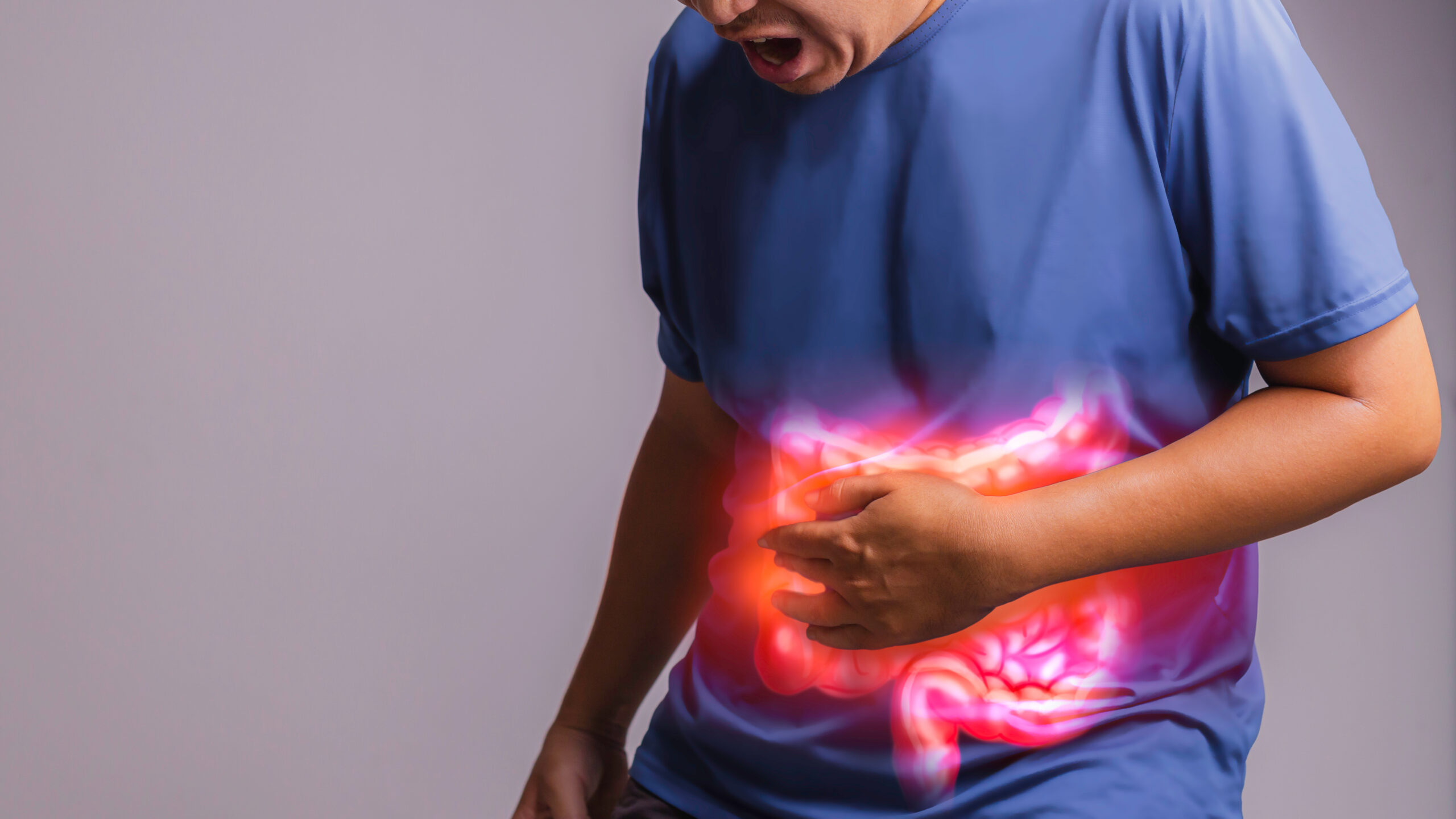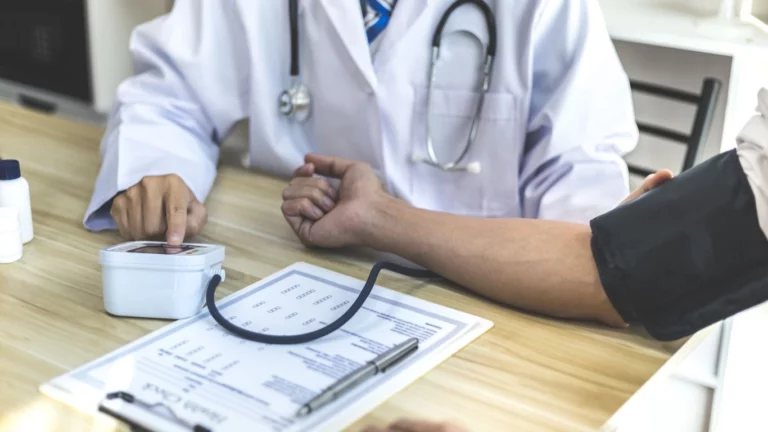Understanding Gastritis: Causes, Symptoms, and Effective Management
Learn about the main causes of gastritis, including H. pylori infection, NSAID use, alcohol consumption, stress, bile reflux, and autoimmune responses.
Introduction to Gastritis
Gastritis is a common gastrointestinal disorder that affects millions of people worldwide. It refers to the inflammation of the stomach lining, which can lead to discomfort and various digestive symptoms. Understanding the main causes of gastritis is crucial in managing and preventing this condition effectively.
What is Gastritis?
Gastritis is a medical condition characterized by the inflammation of the stomach lining. The stomach lining is composed of a protective layer of mucus that shields it from the acidic gastric juices. When this lining becomes inflamed, it can lead to irritation and, in severe cases, erosion of the stomach wall.
Understanding Gastritis Causes
Various factors contribute to the development of gastritis. Identifying these causes is vital in determining the most appropriate treatment and prevention strategies. Let’s explore the main causes of gastritis in detail:
H. pylori Infection – A Leading Cause
One of the primary causes of gastritis is an infection with Helicobacter pylori (H. pylori) bacteria. This common bacterium can reside in the stomach lining and disrupt the protective mucus layer, leading to inflammation. H. pylori infection is often associated with chronic gastritis and can increase the risk of developing peptic ulcers.
Nonsteroidal Anti-Inflammatory Drugs (NSAIDs) and Gastritis
Frequent use of nonsteroidal anti-inflammatory drugs (NSAIDs) such as aspirin, ibuprofen, and naproxen can irritate the stomach lining, causing acute or chronic gastritis. These medications inhibit an enzyme responsible for producing prostaglandins, which are crucial for protecting the stomach lining.
Excessive Alcohol Consumption and Gastritis
Excessive alcohol intake can irritate the stomach lining, leading to acute gastritis. Chronic alcohol consumption can also weaken the stomach’s defense mechanisms, making it more susceptible to inflammation and damage.
Stress and Its Impact on Gastritis
While stress alone may not cause gastritis, it can exacerbate existing gastritis symptoms and lead to a delay in healing. Prolonged stress can affect the immune system, making the stomach more vulnerable to inflammation.
Bile Reflux and Gastritis
Bile reflux occurs when bile, a digestive fluid, flows back into the stomach from the small intestine. This backflow can irritate the stomach lining and trigger gastritis.
Autoimmune Gastritis and its Triggers
In some cases, the body’s immune system mistakenly attacks the cells of the stomach lining, leading to autoimmune gastritis. This rare form of gastritis can be triggered by various factors, including genetic predisposition and certain autoimmune disorders.

Gastritis Explained
To better comprehend gastritis and its causes, it’s essential to delve deeper into its different forms, including acute and chronic gastritis.
Anatomy of the Stomach and Gastric Mucosa
Understanding the structure of the stomach and its protective layer of gastric mucus provides insight into how gastritis develops. The gastric mucus acts as a barrier against the corrosive effects of stomach acid and other irritants.
Types of Gastritis
Gastritis can be categorized into two main types: acute gastritis and chronic gastritis.
- Acute Gastritis: This form of gastritis develops suddenly and is often caused by NSAID use, alcohol consumption, or bacterial infections. It can cause short-term discomfort and resolve with appropriate treatment.
- Chronic Gastritis: Chronic gastritis develops gradually and can persist for an extended period. H. pylori infection and autoimmune conditions are common causes of chronic gastritis.
Acute vs. Chronic Gastritis
Distinguishing between acute and chronic gastritis is crucial for accurate diagnosis and treatment. Acute gastritis tends to have more noticeable and immediate symptoms, while chronic gastritis may present with mild or intermittent signs.
Main Causes of Gastritis

Now that we have explored the different types of gastritis, let’s delve deeper into the main causes behind its development.
H. pylori Infection – A Leading Cause
Helicobacter pylori (H. pylori) is a type of bacteria that infects the stomach lining, leading to chronic inflammation. H. pylori infection is one of the most prevalent causes of gastritis and is often associated with the development of peptic ulcers.
H. pylori can survive in the acidic environment of the stomach and weaken the protective mucus barrier. This makes the stomach lining more susceptible to damage from stomach acid, resulting in inflammation and gastritis.
To determine the presence of an H. pylori infection, doctors may recommend tests such as a breath test, stool test, or endoscopy with tissue biopsy. If detected, treatment typically involves a combination of antibiotics and proton pump inhibitors (PPIs) to eradicate the bacteria and reduce acid production.
Nonsteroidal Anti-Inflammatory Drugs (NSAIDs) and Gastritis
Nonsteroidal anti-inflammatory drugs (NSAIDs) are commonly used to alleviate pain and reduce inflammation. However, frequent and prolonged use of NSAIDs can irritate the stomach lining, leading to gastritis.
NSAIDs work by inhibiting the activity of cyclooxygenase (COX) enzymes, which play a role in producing prostaglandins, substances that protect the stomach lining. When prostaglandin production is reduced, the stomach becomes more susceptible to irritation and inflammation from stomach acid.
Individuals with a history of stomach ulcers or gastritis should use NSAIDs cautiously and under the guidance of a healthcare professional. In some cases, doctors may prescribe alternative pain management strategies or recommend the concurrent use of medications to protect the stomach lining while taking NSAIDs.
Excessive Alcohol Consumption and Gastritis
Excessive alcohol consumption can irritate the stomach lining and lead to acute gastritis. Alcohol has a corrosive effect on the gastric mucosa, weakening the stomach’s protective barrier and making it more vulnerable to inflammation.
Chronic alcohol consumption can also contribute to the development of chronic gastritis. It weakens the immune system and reduces the stomach’s ability to protect itself from harmful substances, including stomach acid.
To prevent alcohol-induced gastritis, individuals are advised to consume alcohol in moderation or avoid it altogether if they have a history of gastritis or other digestive disorders.
Stress and Its Impact on Gastritis
While stress alone may not cause gastritis, it can exacerbate existing symptoms and delay the healing process. Prolonged stress triggers the release of certain hormones that can affect the immune system and increase inflammation.
For individuals prone to gastritis or those experiencing gastritis symptoms, managing stress is crucial. Stress management techniques, such as mindfulness, meditation, yoga, and regular exercise, can be beneficial in reducing stress levels and promoting overall well-being.
Bile Reflux and Gastritis
Bile reflux occurs when bile, a digestive fluid produced by the liver, flows backward into the stomach and sometimes reaches the esophagus. Bile contains harsh chemicals that can irritate the stomach lining, leading to inflammation and gastritis.
Bile reflux is often associated with conditions such as gastroesophageal reflux disease (GERD) and gastritis. Treatment may involve lifestyle modifications, such as avoiding trigger foods and maintaining a healthy weight, as well as medications to reduce stomach acid production.
Autoimmune Gastritis and its Triggers
Autoimmune gastritis is a rare form of gastritis in which the body’s immune system mistakenly attacks the cells of the stomach lining. This autoimmune response can lead to chronic inflammation and damage to the stomach’s mucous-producing cells.
The exact triggers of autoimmune gastritis are not fully understood, but it is believed to have a genetic component. Certain autoimmune disorders, such as type 1 diabetes and Hashimoto’s thyroiditis, may increase the risk of developing autoimmune gastritis.

Diagnosing Gastritis
Diagnosing gastritis involves a combination of medical history, physical examination, and diagnostic tests. It is essential to differentiate gastritis from other digestive disorders to provide appropriate treatment.
Medical History and Physical Examination
During the medical history interview, the healthcare provider will inquire about the patient’s symptoms, their duration and intensity, and any underlying medical conditions. Information about the patient’s lifestyle, including dietary habits, alcohol consumption, and medication use, may also be relevant in identifying potential causes of gastritis.
A physical examination may be conducted to check for signs of abdominal tenderness or other physical indications of gastritis. However, the physical exam alone may not be sufficient to confirm the diagnosis.
Diagnostic Tests for Gastritis
Several diagnostic tests can help confirm the presence of gastritis and determine its underlying cause:
- Endoscopy: An endoscopy involves inserting a thin, flexible tube with a camera (endoscope) into the esophagus and stomach to examine the lining for signs of inflammation or damage. Tissue samples (biopsies) may be taken during the procedure for further examination.
- Blood Tests: Blood tests can help detect H. pylori antibodies or anemia, which may indicate chronic gastritis.
- Stool Test: A stool test may be used to check for the presence of H. pylori bacteria.
- Breath Test: A breath test can detect the presence of H. pylori by measuring the levels of specific compounds in the breath.
- X-ray or CT Scan: In some cases, imaging tests may be used to rule out other conditions and identify structural abnormalities in the digestive system.
Differentiating Gastritis from Other Digestive Disorders
Gastritis shares symptoms with other digestive disorders, such as gastroesophageal reflux disease (GERD) and peptic ulcers. Differentiating between these conditions is crucial to determine the most appropriate treatment plan.
A thorough evaluation by a qualified healthcare professional, along with the results of diagnostic tests, can help accurately diagnose gastritis and guide effective management.

Preventive Measures for Gastritis
Preventing gastritis involves making lifestyle changes and adopting healthy habits to reduce the risk of stomach lining inflammation.
Lifestyle Changes for Gastritis Prevention
- Limit Alcohol Consumption: Reducing alcohol intake or avoiding it altogether can help prevent alcohol-induced gastritis.
- Quit Smoking: Smoking weakens the stomach’s protective mucus layer, making it more susceptible to damage from stomach acid and other irritants.
- Manage Stress: Practicing stress-reduction techniques can help minimize the impact of stress on the digestive system and overall health.
- Avoid Trigger Foods: Certain foods and beverages, such as spicy foods, caffeine, and acidic drinks, can exacerbate gastritis symptoms. Avoiding these trigger foods can help prevent irritation of the stomach lining.
- Maintain a Healthy Diet: A balanced diet rich in fruits, vegetables, and fiber can support digestive health and reduce the risk of gastritis.
Dietary Recommendations to Reduce Gastritis Risk
- Choose Lean Protein Sources: Opt for lean proteins such as fish, poultry, and tofu, which are less likely to irritate the stomach lining.
- Incorporate Probiotics: Probiotics can promote a healthy balance of gut bacteria, which may help reduce inflammation and improve digestion.
- Stay Hydrated: Drinking plenty of water can help maintain a healthy digestive system and protect the stomach lining.
- Avoid Eating Before Bedtime: Lying down shortly after eating can increase the risk of acid reflux and gastritis symptoms. Aim to finish meals at least a few hours before bedtime.
Managing Stress to Prevent Gastritis
Chronic stress can negatively impact the digestive system and exacerbate gastritis symptoms. To manage stress effectively:
- Practice Relaxation Techniques: Engage in activities that promote relaxation, such as meditation, deep breathing exercises, and progressive muscle relaxation.
- Regular Exercise: Physical activity can reduce stress levels and promote overall well-being.
- Seek Support: Talking to friends, family, or a mental health professional about stress and its impact on health can be beneficial.
- Prioritize Self-Care: Make time for activities that bring joy and relaxation, such as hobbies, spending time in nature, or pursuing creative outlets.

Treatment Options for Gastritis
Effective treatment of gastritis depends on identifying its underlying cause. Treatment approaches may vary based on the type and severity of gastritis.
Medical Treatments for Gastritis
- Medications to Reduce Stomach Acid: Proton pump inhibitors (PPIs) and H2 blockers can help reduce stomach acid production, allowing the stomach lining to heal.
- Antibiotics: If an H. pylori infection is identified, a combination of antibiotics may be prescribed to eliminate the bacteria.
- Antacids: Antacids can provide temporary relief from gastritis symptoms by neutralizing stomach acid.
- Cytoprotective Agents: Medications that enhance the protective mucus layer in the stomach can aid in the healing of gastritis.
- Medication Adjustment: For individuals taking NSAIDs regularly, the healthcare provider may adjust the dosage or recommend alternative pain management strategies to prevent gastritis.
Home Remedies and Natural Therapies
In addition to medical treatments, some individuals may find relief from gastritis symptoms through home remedies and natural therapies:
- Aloe Vera: Aloe vera juice may help soothe inflammation and promote stomach lining healing.
- Chamomile Tea: Chamomile tea has anti-inflammatory properties and may provide relief from gastritis symptoms.
- Ginger: Ginger can help alleviate nausea and stomach discomfort associated with gastritis.
- Peppermint: Peppermint oil or tea may help reduce indigestion and bloating.
It is essential to consult with a healthcare professional before using any home remedies, as some natural substances may interact with medications or exacerbate certain medical conditions.
Integrative Approaches to Gastritis Management
Complementary and alternative therapies may be used in conjunction with conventional treatments to manage gastritis effectively:
- Acupuncture: Acupuncture, a traditional Chinese medicine technique, may help alleviate gastritis symptoms and reduce stress.
- Herbal Medicine: Certain herbal supplements, such as licorice root and slippery elm, have been traditionally used to support digestive health.
- Mind-Body Practices: Practices like yoga and meditation can help reduce stress and promote overall well-being, potentially benefiting gastritis management.
It is crucial to discuss the use of integrative therapies with a qualified healthcare provider to ensure safety and effectiveness.

Complications of Gastritis
Untreated or poorly managed gastritis can lead to several complications, including:
Potential Complications of Untreated Gastritis
- Peptic Ulcers: Chronic inflammation from untreated gastritis can lead to the formation of peptic ulcers in the stomach or duodenum.
- Bleeding: In severe cases, gastritis-related inflammation can cause bleeding in the stomach lining, leading to blood in the stool or vomit.
- Anemia: Chronic gastritis can result in iron deficiency anemia due to reduced absorption of iron in the stomach.
Gastritis and Peptic Ulcers
Gastritis and peptic ulcers are closely related conditions. While gastritis refers to inflammation of the stomach lining, peptic ulcers are open sores that develop in the lining of the stomach or the upper part of the small intestine.
Chronic gastritis, especially if caused by H. pylori infection, can increase the risk of developing peptic ulcers. It is essential to manage gastritis effectively to prevent complications such as ulcers.
Gastritis and Gastric Cancer Risk
Chronic gastritis, particularly autoimmune gastritis, may increase the risk of developing gastric cancer. Over time, chronic inflammation can lead to changes in the stomach lining, increasing the likelihood of cancerous cell growth.
Regular medical check-ups and appropriate management of gastritis are essential in monitoring for any signs of progression to gastric cancer.

Gastritis in Children and the Elderly
Gastritis can affect individuals of all ages, including children and the elderly. However, specific considerations apply to these age groups:
Special Considerations for Pediatric Gastritis
In children, gastritis may be caused by factors such as viral infections, certain medications, or ingestion of toxic substances. The symptoms of pediatric gastritis may differ from those in adults, making diagnosis challenging.
If a child exhibits persistent digestive symptoms, such as abdominal pain, nausea, or vomiting, it is essential to seek medical attention for accurate diagnosis and treatment.
Gastritis Management in the Elderly
In the elderly, gastritis may be more common due to factors such as reduced stomach acid production and weakened immunity. Elderly individuals are also more likely to be on medications, including NSAIDs, which can contribute to gastritis development.
The treatment of gastritis in the elderly may require adjustments based on their medical history and any pre-existing conditions. Regular medical follow-ups and adherence to treatment recommendations are essential in managing gastritis effectively.
Conclusion
Gastritis is a common condition that can cause discomfort and affect the overall quality of life. Understanding the main causes of gastritis, such as H. pylori infection, NSAID use, alcohol consumption, stress, bile reflux, and autoimmune responses, is crucial in developing effective prevention and treatment strategies.
By adopting healthy lifestyle habits, managing stress, and seeking timely medical attention, individuals can effectively manage gastritis and prevent its potential complications. Early diagnosis and appropriate treatment can lead to improved outcomes and better digestive health for those affected by gastritis.
Promoting Gastritis Awareness and Health Education
Raising awareness about gastritis and its causes is essential in encouraging individuals to take preventive measures and seek timely medical attention. Health education initiatives should focus on:
- Recognizing Gastritis Symptoms: Educating individuals about the common symptoms of gastritis can help them identify the condition early and seek appropriate medical care.
- Lifestyle Modifications: Promoting healthy lifestyle habits, such as a balanced diet, regular exercise, stress management, and avoiding excessive alcohol and NSAID use, can reduce the risk of gastritis development.
- Early Detection and Treatment: Encouraging regular check-ups and timely medical attention can lead to early detection and effective management of gastritis.
- Understanding Complications: Informing individuals about the potential complications of untreated gastritis, such as peptic ulcers and gastric cancer, can underscore the importance of proactive health measures.
By combining public health efforts with individual responsibility, we can work towards reducing the burden of gastritis and promoting better digestive health for all.
Appendices:
References:
- Santucci NR, Hyman PE. Acute and Chronic Gastritis. Pediatr Rev. 2011;32(5):198-206. doi:10.1542/pir.32-5-198
- Sipponen P, Maaroos HI. Chronic gastritis. Scand J Gastroenterol. 2015;50(6):657-667. doi:10.3109/00365521.2015.1018871
- McColl KE. Helicobacter pylori infection. N Engl J Med. 2010;362(17):1597-1604. doi:10.1056/NEJMcp1001110
- Peptic Ulcer Disease and Gastritis. Merck Manual Professional Version. https://www.merckmanuals.com/home/digestive-disorders/gastritis-and-peptic-ulcer-disease/introduction-to-gastritis-and-peptic-ulcer-disease Accessed July 23, 2023.
FAQs:
Q1. What is gastritis? A1. Gastritis is the inflammation of the stomach lining, which can lead to discomfort and various digestive symptoms.
Q2. What are the main causes of gastritis? A2. The main causes of gastritis include H. pylori infection, NSAID use, excessive alcohol consumption, stress, bile reflux, and autoimmune responses.
Q3. How is gastritis diagnosed? A3. Gastritis is diagnosed through a combination of medical history, physical examination, and diagnostic tests such as endoscopy and blood tests.
Q4. Can stress cause gastritis? A4. While stress alone may not cause gastritis, it can exacerbate existing symptoms and delay healing. Managing stress is essential for gastritis management.
Disclaimer:
The information provided in this article is for educational and informational purposes only. It should not be used as a substitute for professional medical advice, diagnosis, or treatment. Always seek the advice of your healthcare provider or qualified medical professional with any questions you may have regarding a medical condition. Never disregard professional medical advice or delay seeking it because of something you have read in this article. The author and publisher are not responsible for any actions taken based on the information provided in this article.

Camellia Wulansari is a dedicated Medical Assistant at a local clinic and a passionate health writer at Healthusias.com. With years of hands-on experience in patient care and a deep interest in preventive medicine, she bridges the gap between clinical knowledge and accessible health information. Camellia specializes in writing about digestive health, chronic conditions like GERD and hypertension, respiratory issues, and autoimmune diseases, aiming to empower readers with practical, easy-to-understand insights. When she’s not assisting patients or writing, you’ll find her enjoying quiet mornings with coffee and a medical journal in hand—or jamming to her favorite metal band, Lamb of God.







